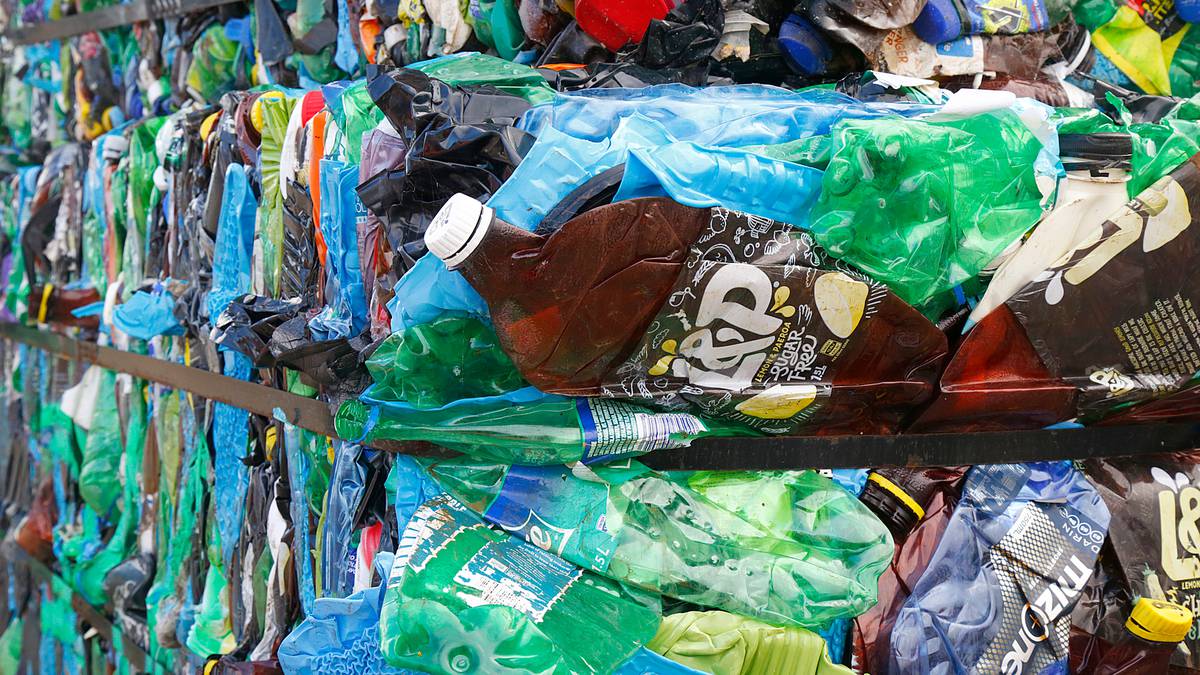Greenpeace say a focus on reducing plastic over recycling is most important moving forward. Photo/File
As Plastic Free July comes to a close, Far North mum Joanne Rome has looked back on her efforts to become part of the solution to the plastic crisis.
A few years ago, she and her family of three would regularly take two full bins of plastic bottles to the recycling centre every fortnight.
And, like many, they considered it a good thing.
Today, they recycle just two or three bottles – and sometimes none at all – in the same amount of time.
Rome said her family now choose more carefully when shopping and continue to learn new ways to reduce and reuse rather than just recycle.
“Don’t think of it as giving things up. It’s just about finding better options,” she said.
“When I heard about Plastic Free July, I’d already been trying it. I think these sorts of things are good to make people feel more aware of the need to make changes.”
Plastic Free July started in Australia about a decade ago with the aim of encouraging people to make extra effort to reduce their use of plastic.
“Trying to observe it for a month means you can slowly pick the habit up,” Rome said.
Slowly and steadily, she has built up enough good habits to see her plastic recycling bin nearly empty.
“When we buy condiments, I try to choose brands that use glass jars. Then I can reuse them when I make chutneys or jams, or to store leftovers.”
“And we go through a lot of milk, so we choose the one in the refillable glass bottle. It’s a little more expensive up front, but it’s cheaper when you swap it for the next bottle.”
“Then there’s the SodaStream, and choosing the cordials that come in glass bottles, instead of buying bottles of soft drink.”
Soft plastics present another challenge because they are so pervasive and because relatively new recycling schemes may seem like they solve the problem.
According to Greenpeace Aotearoa plastics campaigner Juressa Lee: “We certainly need to be collecting what’s already out in the environment, and thinking of ways to rescue it. But this is not a solution to the problem.”
She said people needed to realise plastics were being downcycled into things like fence posts and that’s only a short delay of the inevitable.
“And that inevitable is that plastic eventually breaks down into microplastics,” Lee said.
“Microplastics are found everywhere. Our wildlife are eating it. We’re eating it. We’re breathing it and we’re drinking it.
“Downcycling is just another false solution, like recycling and incineration. We need to move away from this linear model of take, make and throw away.
“We need to move towards refill and reuse, because then we can move away from single use.”
Rome would therefore appear to be on the right track with her efforts to reduce and reuse plastics at every opportunity.
“If we do get something in bags, like certain produce or bread, I save them and reuse them for food storage or as rubbish bags,” Rome said.
“Another thing is going to the butcher; you can take your container and avoid the plastic completely. I saw someone else doing it and thought ‘that’s so easy’.”
After learning that Ecostore brand detergent bottles could be submitted to a plastic recycling programme by dropping them off at Eco Centre Kaitaia, Rome switched to the brand.
Jo Shanks, who manages Te Pokapu Tiaki o Te Tai Tokerau Trust (Far North Environment Centre), of which Eco Centre is the Far North Hub, said the centre was still accepting Ecostore bottles, which it sent to Auckland for recycling.
Although the service was “well-used by the public, we would prefer if folks found a way to reduce plastic consumption over recycling”, Shanks said, saying people should use the EcoStore refillery at CBEC Garden Centre on Pukepoto Rd.
Shanks also said many options around Kaitaia supported plastic-free shopping.
“Your Shelf specialises in zero waste shopping and is cheaper than the local supermarket, Whānau Meats and Bells Produce accept BYO containers, and Pak’nSave deli accepts them too,” Shanks said.
“These options mean anyone can reduce their plastic waste easily in the Far North, if they change their weekly shopping habits.”
Rome said although she had been aware of the problem for some time, becoming a mother cemented her commitment to clean up her consumer choices.
“I’m sure I did it a little bit before then, but I got more interested when I had a baby. You want to think about the future for them.”
Greenpeace Aotearoa recently cited global estimates that only 9 per cent of all the plastic waste ever produced had been recycled.
Lee put it simply: “The problem is that we have too much plastic”.
“The only solution is to stop making it. There really is no other answer.
“Plastic Free July ends, but plastic is forever.”
If the magnitude of the problem feels insurmountable, consider Rome’s take.
“It’s easy to give up if you don’t see a lot of other people trying, or to think ‘what difference does this make?'” Rome said.
“But every little change makes a difference, and you’ll get better at it too.
“Thinking back to how much waste we made before we had Jade, we’ve come a long way.
“It’s good to take a look back and realise how far you’ve come.”




